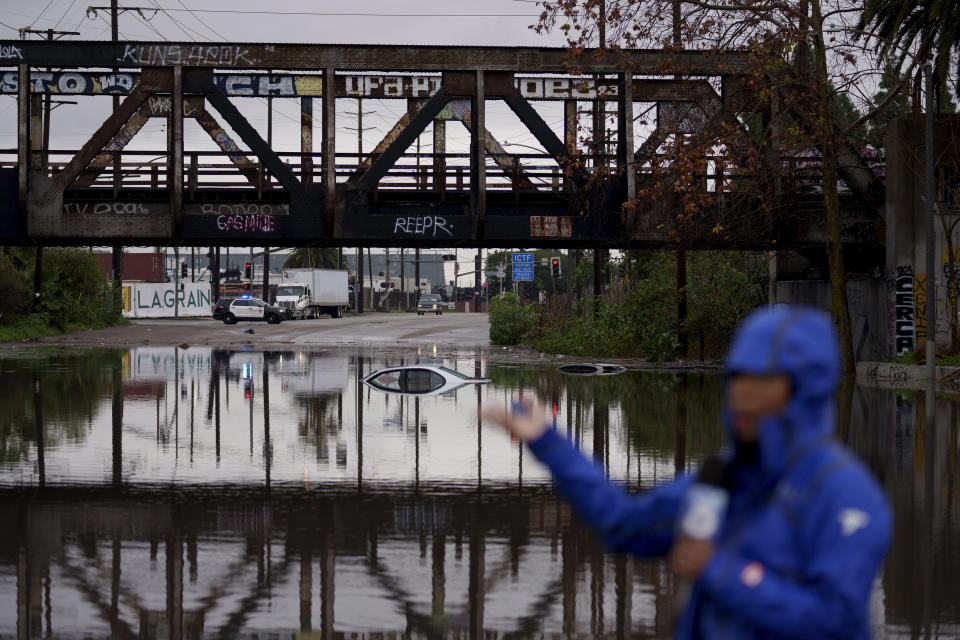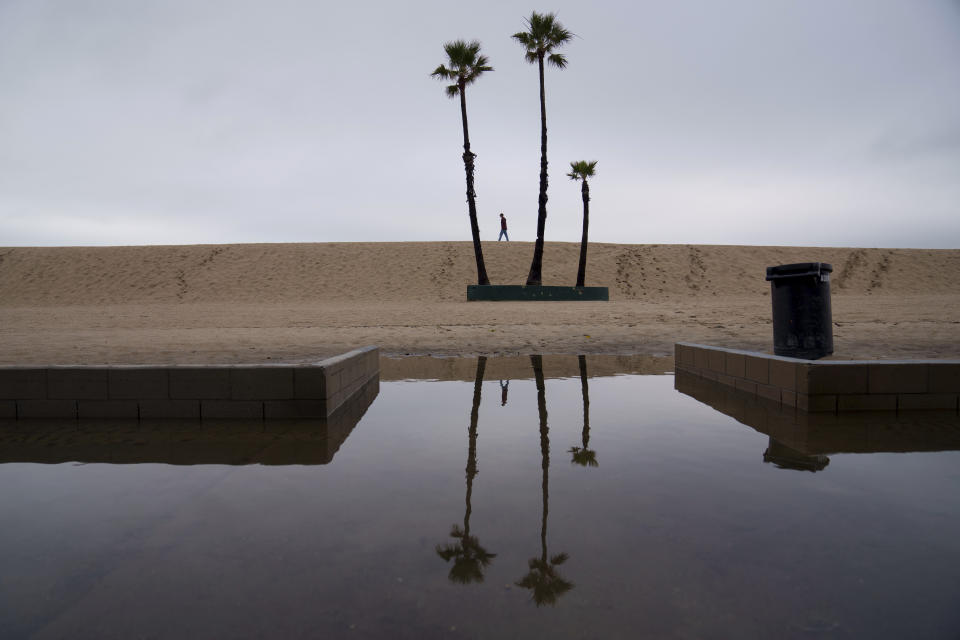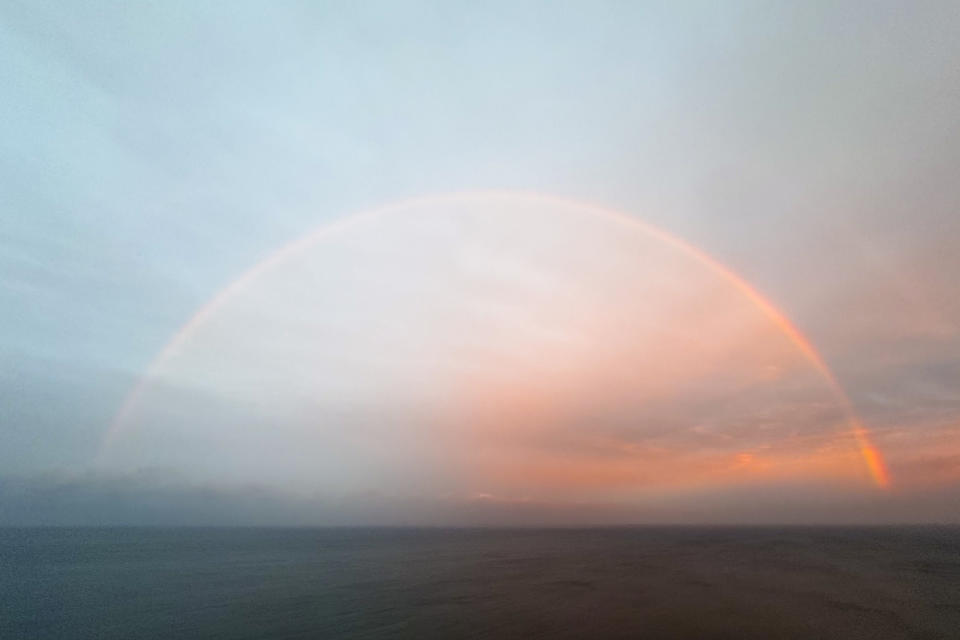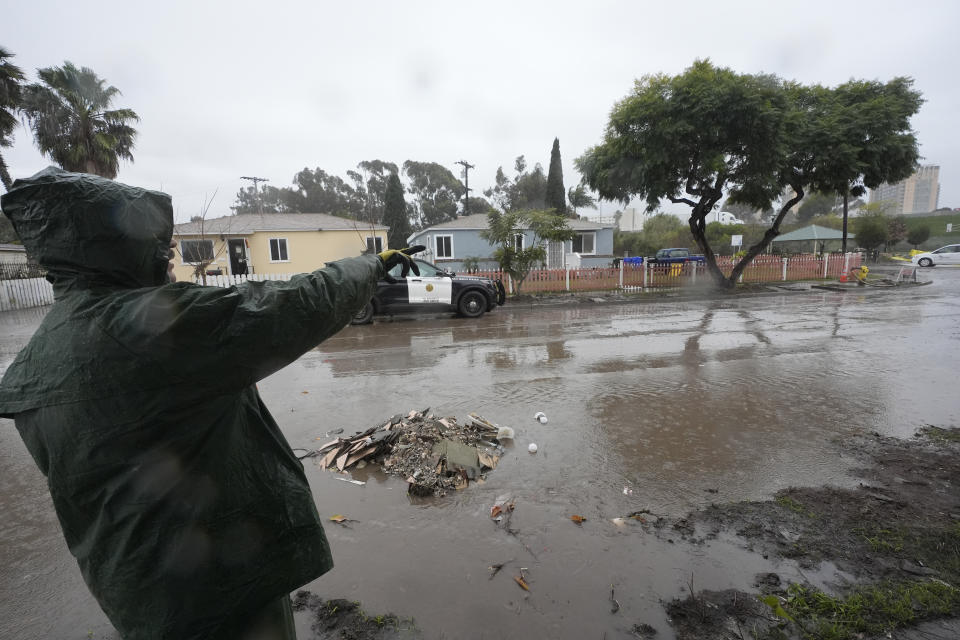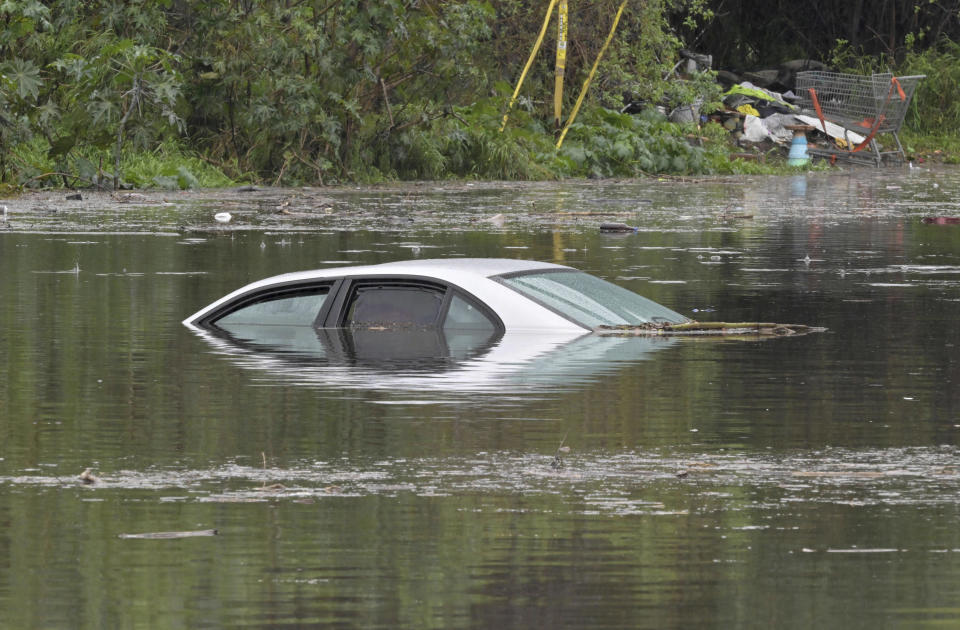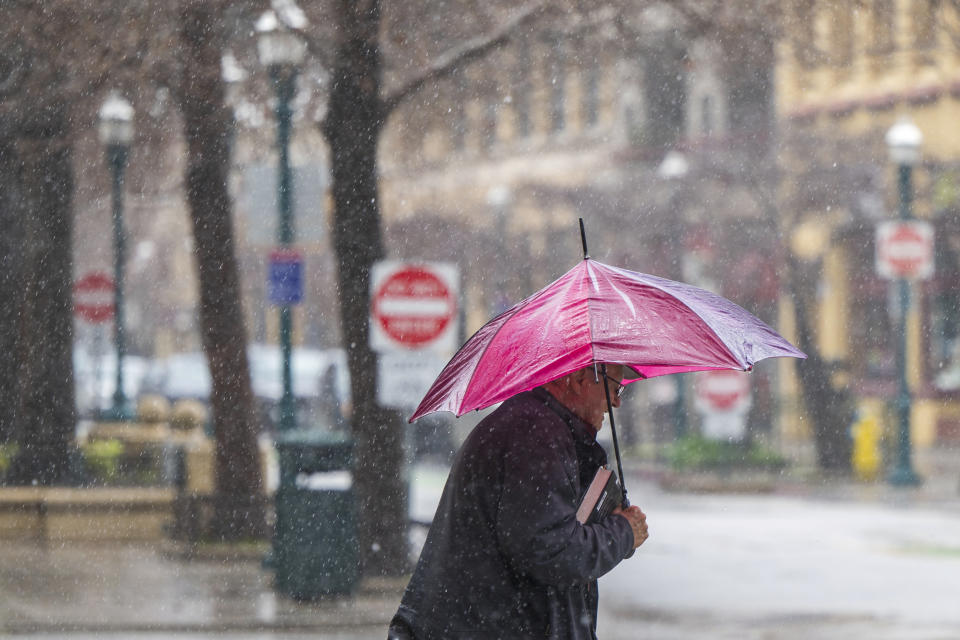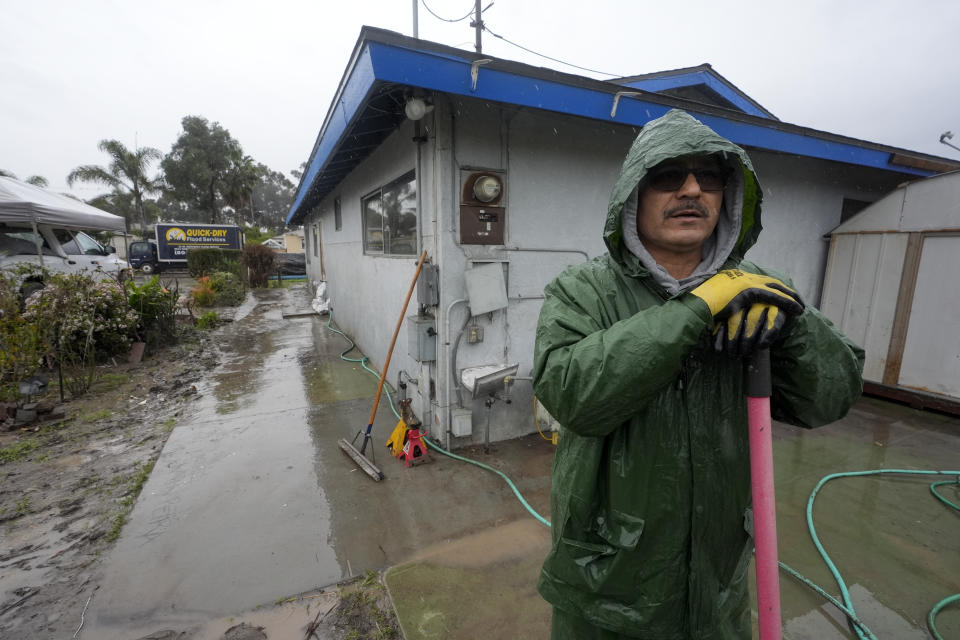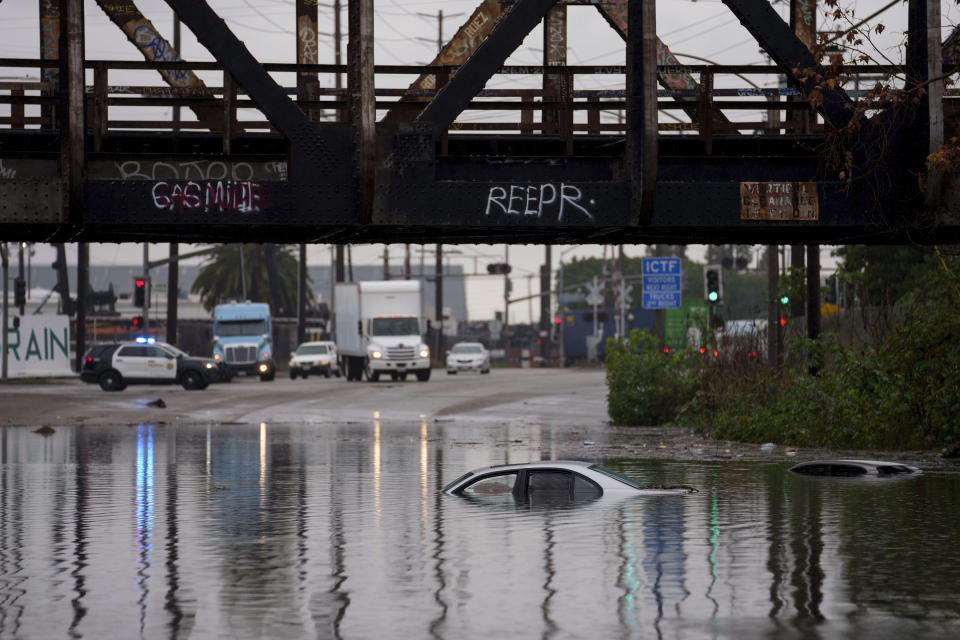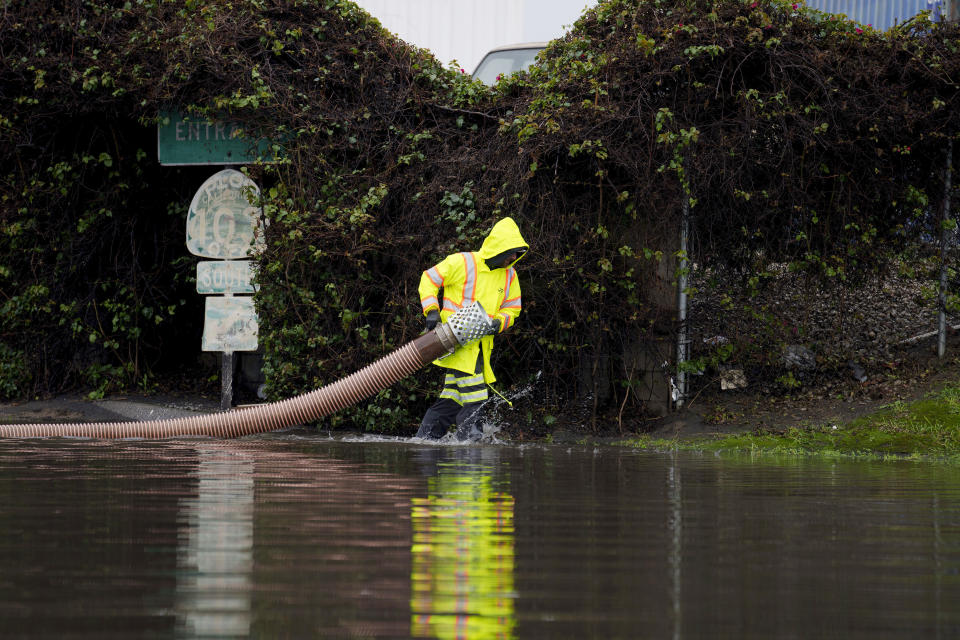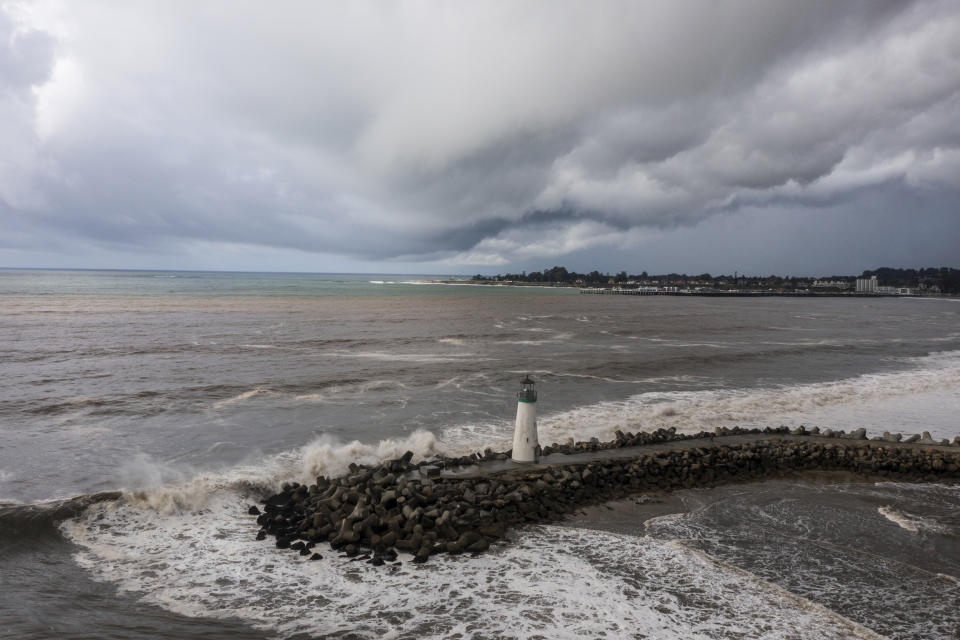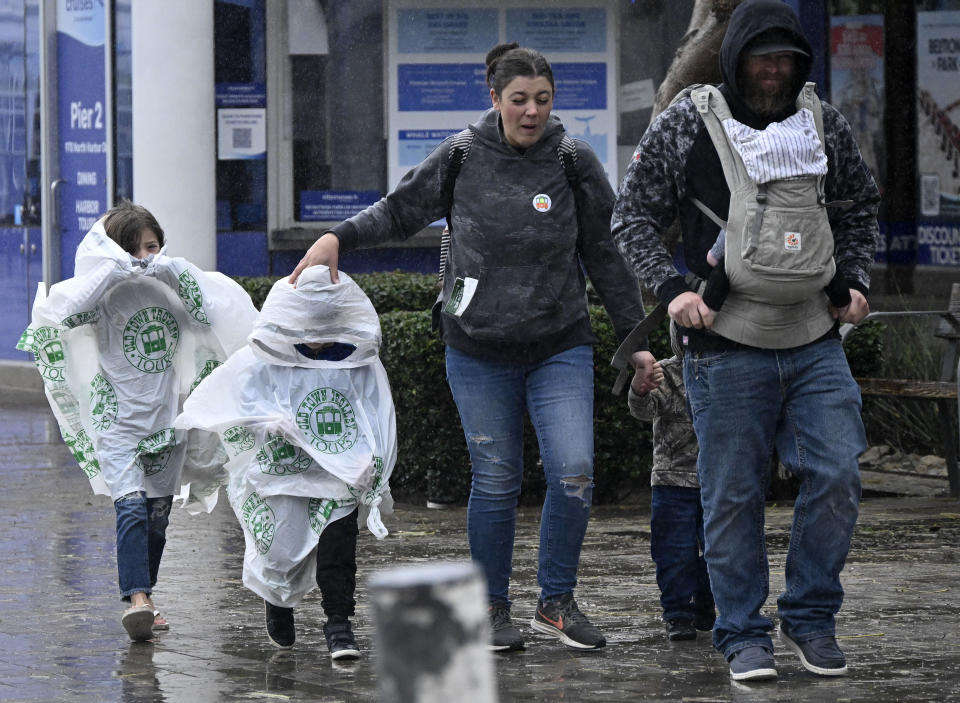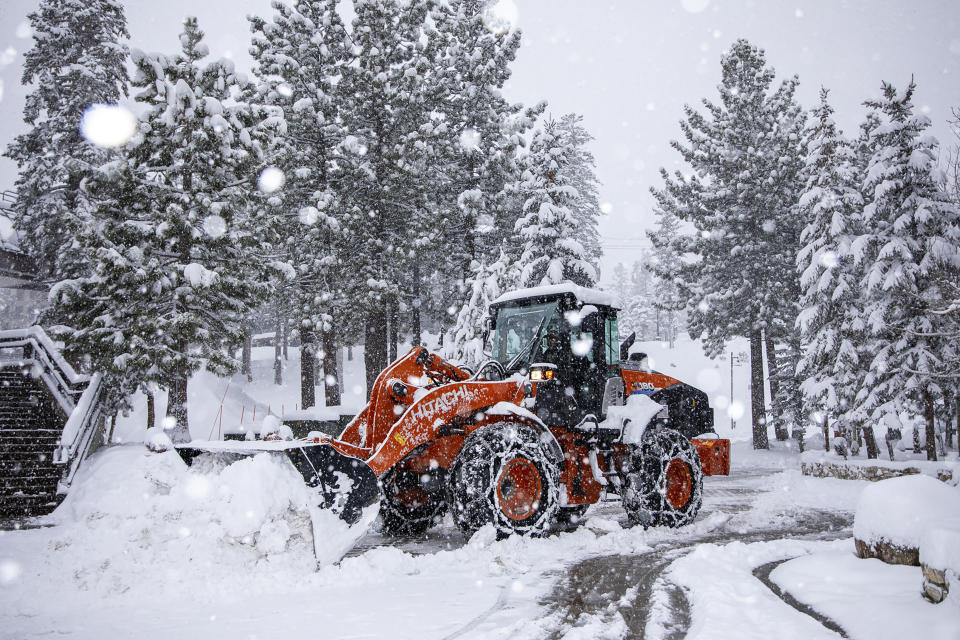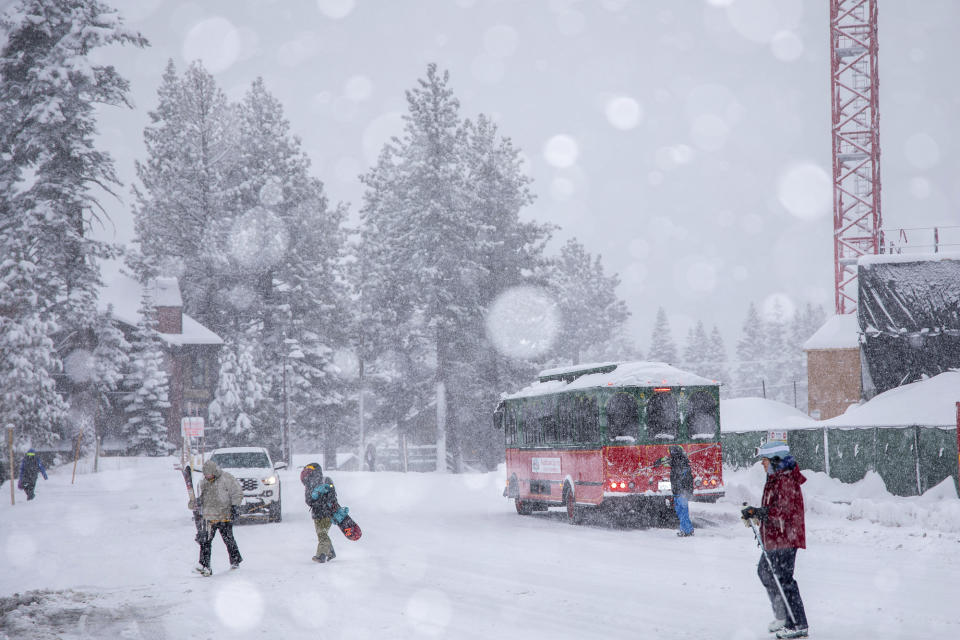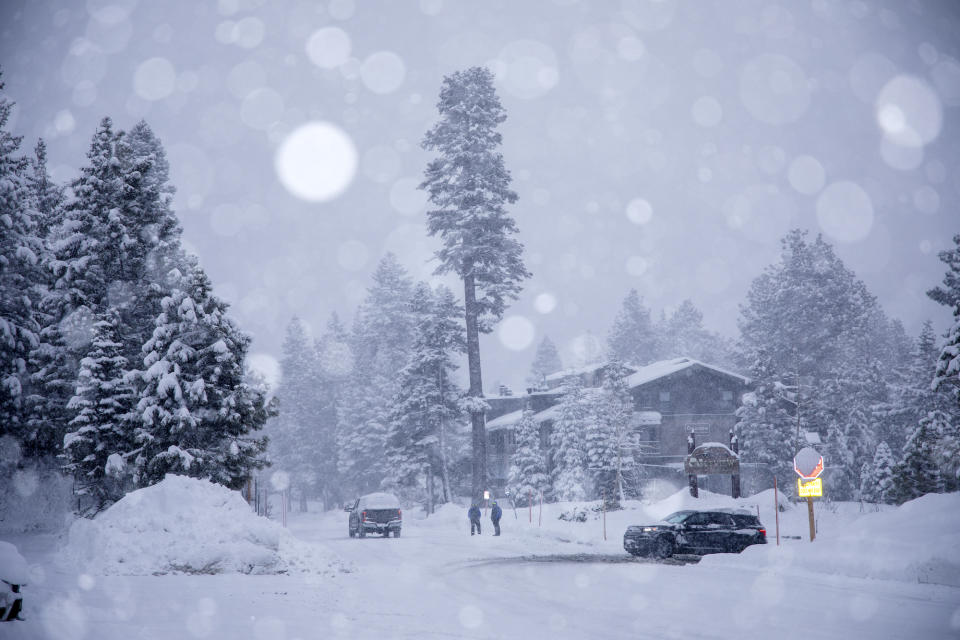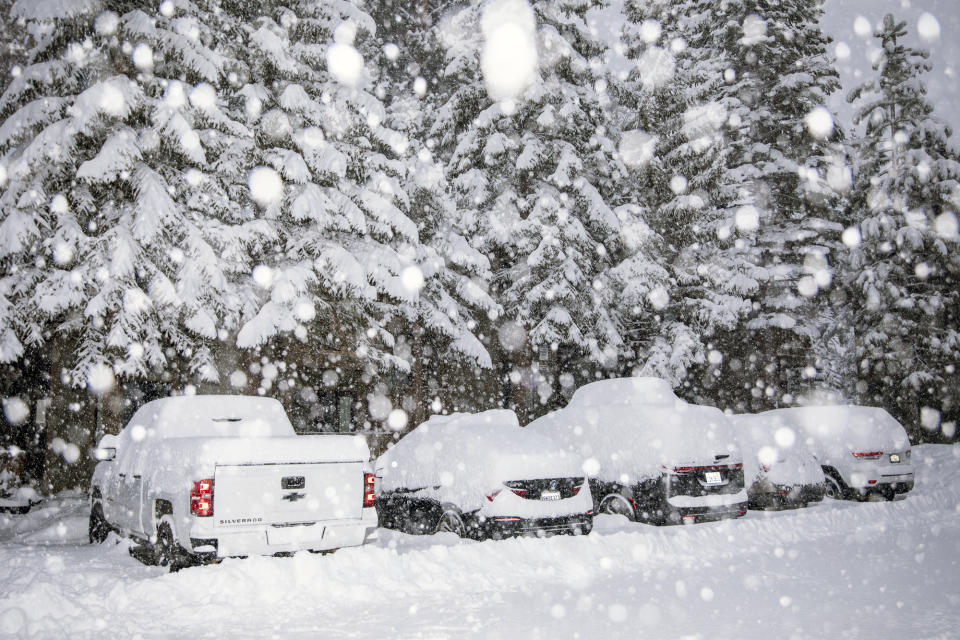California pummeled by first of back-to-back atmospheric rivers as 'Pineapple Express' sweeps state
LOS ANGELES (AP) — Heavy rain flooded California roadways and much-needed snow piled up in the mountains as the first of back-to-back atmospheric rivers pummeled the state Thursday.
The storm focused its energy on the southern and eastern parts of the state after initially hitting the San Francisco Bay Area on Wednesday, where it halted cable car service. The downpours arrived Thursday in Southern California in time to snarl the morning commute.
An atmospheric river, which is a long band of moisture that forms over the Pacific, was fueling the storms dousing the Los Angeles and San Diego areas, said National Weather Service forecaster Bob Oravec.
Atmospheric rivers "typically occur ahead of cold fronts across the Pacific,” he said. “And when they interact with the West Coast topography, you often get some very heavy rain both along the coastal ranges and also inland through the Sierras.”
As sheets of rain fell in San Diego, Ruben Gomez cleaned debris from storm drains in his parents' neighborhood Thursday.
He piled sandbags around what was left of their home, which was hit hard by flooding from an earlier deluge. Firefighters had to rescue his parents, both 82, from the home after the earlier storm, which filled with water reaching six feet high (2 meters). His father was hospitalized for two days because of hypothermia and his mother for a week after she got water in one of her lungs.
“Every hole in the house, I’ve got plugged with plastic and paper to make sure water doesn’t go up so high again," he said.
They have no insurance and are relying on donations from family, friends and neighbors. He said he is grateful still because his parents survived and are now safe at his home in an area less prone to flooding.
Last winter, California was battered by numerous drought-busting atmospheric rivers that unleashed extensive flooding, big waves that hammered shoreline communities and extraordinary snowfall that crushed buildings. More than 20 people died.
This week's “Pineapple Express” — called that because its plume of moisture stretches back across the Pacific to near Hawaii — will be followed by an even more powerful storm on Sunday, forecasters said.
The California Governor’s Office of Emergency Services activated its operations center and positioned personnel and equipment in areas most at risk.
Brian Ferguson, the office's deputy director of crisis communications, characterized the situation as “a significant threat to the safety of Californians.” He said an area from the state's border with Oregon all the way south to San Diego and from the coast into the mountains could be affected over the next 10 to 14 days.
“This really is a broad sweep of California that’s going to see threats over the coming week,” Ferguson said.
A 100-foot (30-meter) redwood tree fell in the Silicon Valley city of Saratoga on Wednesday, crashing down onto a car and trapping a girl inside, according to KNTV. Freed by firefighters, she suffered only minor injuries.
“We were very lucky,” Santa Clara County Fire Department Capt. Matt Mokhtarian told the TV station. “Just a matter of feet in this scenario.”
On Thursday, southern Los Angeles County was hit hard by flash flooding. Vehicles plowed through water on low-lying sections of freeways and at least one underpass beneath a rail crossing in Long Beach was inundated, submerging a car.
Seal Beach, south of Los Angeles, saw flooding along the Pacific Coast Highway on Thursday that closed parts of the freeway at times, with one white van stranded at an intersection.
In nearby Costa Mesa, a swift-water rescue team pulled someone from a flowing storm channel. The person was taken to hospital in stable condition, the Orange County Fire Authority said in a social media post.
The fire authority also rescued a man who was trapped on a small island in the Santa Ana riverbed, surrounded by rushing water. A paramedic had to be lowered by a helicopter to hoist the man to safety.
The Mammoth Mountain ski resort in the Sierra Nevada reported 12 to 14 inches (30-36 centimeters) of snow overnight. Earlier this week, state officials reported that the vital Sierra snowpack, which normally supplies about 30% of California’s water, was far below normal. Heavy snowfall was also reported in the mountains east of Los Angeles.
A winter storm warning was in effect through Friday morning for a nearly 300-mile (480-kilometer) stretch of the Sierra, from north of Lake Tahoe to south of Yosemite National Park, said the weather service office in Reno, Nevada. Snow could fall at rates up to 2 inches (5 centimeters) per hour in some areas, with winds gusting at up to 100 mph (160 kph), forecasters said.
The second atmospheric river, expected to move in late Saturday, is already predicted to be “the largest storm of the season,” according to the National Weather Service. The worst part of the storm will hit late Sunday into Monday as it stalls over Point Conception in Santa Barbara County.
“This system will likely produce 24 to 36 hours (or more) of continuous rain,” the weather service wrote Thursday in a forecast update.
Significant rain and, at higher elevations, snowfall are then expected to hit Southern California from Monday through Wednesday, which could cause mudslides and dangerous flooding.
___
Associated Press journalists Stefanie Dazio in Los Angeles; Nic Coury in Capitola, California; Eugene Garcia in Seal Beach, California; Julie Watson in San Diego; Scott Sonner in Reno, Nevada; and Donna Warder in Washington contributed to this report.
